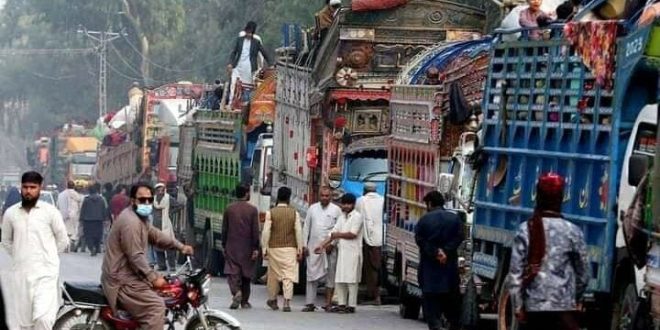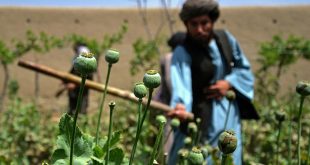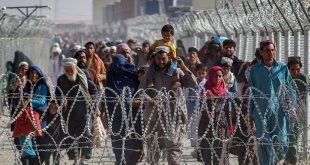AT News
KABUL – Pakistani authorities announced on Monday that more than 400,000 Afghans have returned to Afghanistan amid the ongoing crackdown on illegal foreigners in the country. Zabihullah Mujahid, the chief spokesperson for the Taliban-led government in Afghanistan, confirmed the significant migration, noting that the majority utilized the Torkham and Spin Boldak border crossings.
The nationwide crackdown, initiated by Pakistani authorities, targeted illegal migrants, giving them until October 31 to leave the country or face arrest. Of the 1.7 million Afghans residing in Pakistan, those without proper documentation were the focus of the operation, according to Pakistani officials. The 1.4 million Afghans registered as refugees were assured that they need not worry.
Historically, during the Soviet occupation in the 1980s and following the Taliban takeover in 2021, millions of Afghans sought refuge in Pakistan. As part of the new measures, Pakistan introduced visa requirements for hundreds of thousands of residents in the southwestern border town of Chaman, who previously had special permits.
Protests erupted in Chaman as residents blocked a key road leading to the border, disrupting traffic and the repatriation process. Demonstrators called on Pakistan to allow them to maintain special permits for business purposes and to visit relatives in the Afghan border city of Spin Boldak.
Since November 1, Pakistani police have conducted door-to-door checks on migrants’ documentation. Although officials had initially stated that the crackdown applied to all foreigners, Afghan nationals constitute the majority of those affected.
The latest developments follow a warning from the World Health Organization, stating that approximately 1.3 million Afghans were expected to return to their homeland from Pakistan despite the onset of cold weather. The expulsions have drawn criticism from international and domestic human rights groups. In response, the Taliban-led administration in Afghanistan asserted that it is providing shelter and food to the returning Afghans.
 Afghanistan Times
Afghanistan Times




